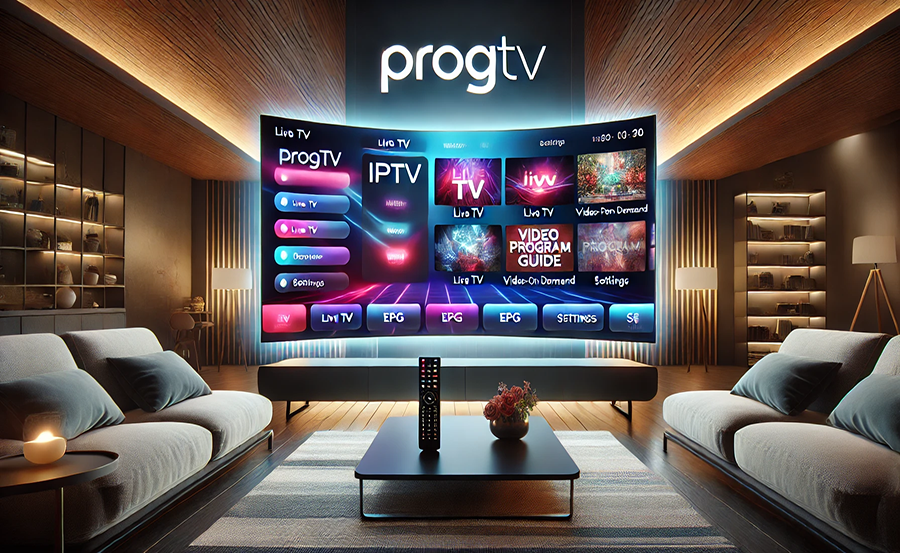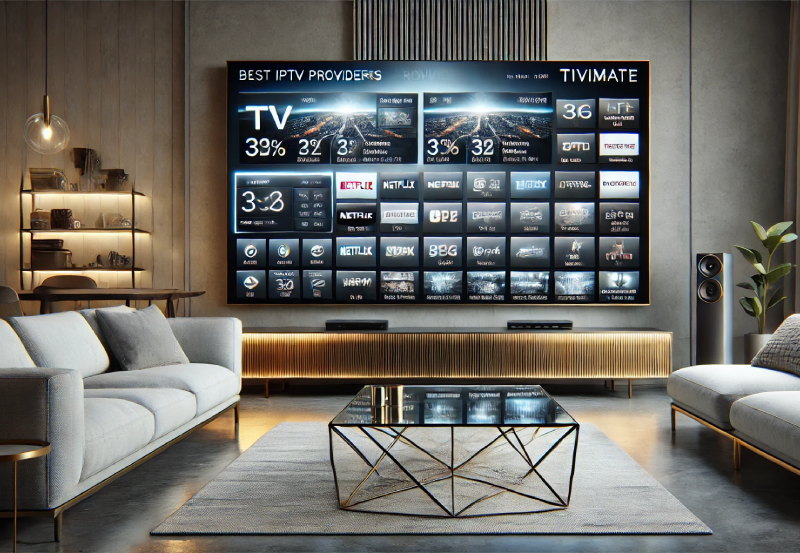Understanding IPTV: A Comprehensive Starting Guide for Beginners
Welcome to the world of IPTV! If you’re tired of conventional cable television and want an innovative way to watch your favorite shows, IPTV is the path to an enhanced viewing experience. This guide will walk you through what IPTV is, how it operates, and the benefits it offers, especially for beginners eager to dive into this modern technology. Prepare to unlock a whole new way of enjoying TV content that seems tailored to your style. Buy 1 Year IPTV Subscription and Enjoy Unlimited Content
What is IPTV?
IPTV stands for Internet Protocol Television, a cutting-edge service that delivers television content over the Internet instead of traditional satellite or cable formats. For those new to IPTV, it’s essentially about getting your TV content delivered through a broadband connection.
How Does IPTV Work?
Understanding the operation of IPTV might seem a bit technical, but in simple terms, it involves sending the video content in small packets of data over the Internet. Here’s a breakdown of how it functions:
- Data Transmission: The video streams as data over the Internet using the Internet Protocol (IP), the same technology that powers the Internet.
- Set-Top Boxes: These devices decode the streamed data to display it on your TV or any other compatible device.
- Interactivity: Unlike traditional TV, IPTV allows for user interactivity, enabling features like pause, rewind, and video on demand.
Types of IPTV Services
IPTV services come in multiple forms, each catering to different needs and preferences:
Live Television
This is similar to traditional broadcast TV, where content is streamed live. Perfect for catching up on sports events or live shows as they happen.
Video on Demand (VOD)
With VOD, viewers can select content from a vast library of shows and movies, making it highly convenient as you can watch at your own pace.
Time-Shifted Television
This service allows users to watch previously aired shows. If you miss a live broadcast, time-shifted television helps you catch up.
Setting Up IPTV: Step-by-Step Guide
Getting started with IPTV might seem daunting, but here’s a straightforward guide to help you set it up with ease:
Choose the Right IPTV Subscription
The first step is selecting a reliable IPTV subscription provider. Consider factors like channel availability, streaming quality, and customer support.
Gather Necessary Equipment
You will need a few essentials to get started:
- Internet Connection: A stable broadband connection is crucial for uninterrupted streaming.
- Set-Top Box: Devices like Roku or Apple TV are commonly used to access IPTV services.
- Smart TV Compatible: Alternatively, a smart TV or restricted devices can be configured to receive IPTV channels.
Installation and Configuration
Once you’ve chosen a provider and have your equipment ready, follow these general steps:
- Connect your internet-enabled device to your TV.
- Install the IPTV app, usually available through app stores or directly from the provider’s site.
- Log in and configure the app with your subscription details.
Testing and Troubleshooting
After setting up, it’s essential to test your connection. Ensure the stream quality meets your expectations. Troubleshooting steps may include checking internet speed, restarting your device, and consulting your provider’s customer support if necessary.
Maximizing Your IPTV Experience
Once set up, make the most out of your IPTV service with these handy tips:
Customize Your Channel List
Personalize your experience by selecting your favorite channels: IPTV services typically allow users to curate lists, ensuring you aren’t bombarded with content you don’t enjoy.
Utilize the Record Feature
Many IPTV subscriptions include DVR capabilities, allowing you to record live programs to watch at a convenient time. Never miss a favorite show again!
Explore On-Demand Content
Dive into the vast library of on-demand movies and series. Try exploring different genres or new releases for an enriched viewing experience.
Take Advantage of Multiple Device Support
IPTV often supports viewing across several devices simultaneously. Experience flexibility by watching on your TV, laptop, or even your smartphone.
Overcoming Common IPTV Challenges
While IPTV offers numerous benefits, you might face occasional challenges:
Buffering Issues
Ensure an uninterrupted experience by maintaining a strong internet connection. Reducing the streaming quality or using a wired connection can also help mitigate buffering.
Subscription Problems
If you encounter issues with your IPTV subscription, such as missing channels or billing errors, contact your provider’s customer support promptly for resolution.
Compatibility Troubles
Check that all your devices are compatible with your IPTV service. This includes ensuring your set-top box or smart TV is updated and supported by the provider’s app.
Looking Ahead: The Future of IPTV
IPTV is gaining traction worldwide, and its future looks promising with the continual enhancement of internet services. From virtual reality integration to more personalized content options, IPTV technology is set to transform TV viewing continuously.
As a beginner, jumping into IPTV now positions you at the forefront of a broadcast revolution, offering unprecedented control and variety in how you consume content. You’ll find yourself part of a tech-savvy community that’s changing the way people view television day by day.
Your IPTV Questions Answered

What Internet Speed Do I Need For IPTV?
You’ll need at least a 10 Mbps connection for standard definition streaming, but 25 Mbps or higher is recommended for HD or 4K streams to avoid buffering.
Can I Use IPTV on My Mobile Device?
Yes, many IPTV services offer mobile apps that allow you to stream on smartphones and tablets, providing flexibility and mobility.
Is IPTV Legal?
IPTV itself is legal. However, ensure your IPTV service provider is authorized to distribute the content they offer to avoid any legal issues.
How Do I Troubleshoot IPTV Buffering?
To reduce buffering, confirm your internet speed meets provider recommendations, consider using a wired connection instead of Wi-Fi, and check for device updates.
Do I Need a VPN for IPTV?
While not mandatory, a VPN can provide added security and privacy. It helps protect your data, especially when accessing IPTV services over public networks.
Elevate Your Viewing Experience: Top Reasons to Choose IPTV Over Cable





